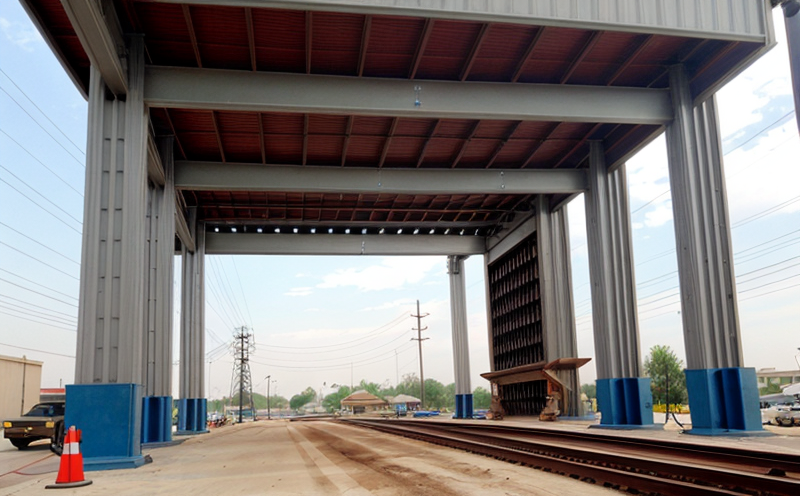ISO 21650 Impact Resistance Testing of Aerospace Structures
The ISO 21650 standard provides a comprehensive framework for assessing the impact resistance properties of aerospace structures. This service is critical in ensuring that materials and components used in aircraft, spacecraft, and other aerospace applications meet stringent safety and performance requirements. The primary goal is to simulate potential impact scenarios under controlled laboratory conditions to evaluate structural integrity.
The test methodology involves subjecting specimens to dynamic loading events designed to mimic real-world impacts such as bird strikes, debris collisions, or landing gear loads. This ensures that the materials can withstand these stresses without compromising safety or performance. The standard is applicable to a wide range of aerospace structures including wings, fuselage sections, engine nacelles, and other critical components.
ISO 21650 encompasses various aspects such as impact energy absorption, deformation behavior, fracture toughness, and residual strength. It utilizes advanced testing equipment that can generate controlled impacts from multiple angles and velocities to assess the material's response. The test results provide valuable insights into the material's ability to absorb energy during an impact without failing catastrophically.
For accurate testing, specimens are prepared according to specified dimensions and surface finishes. The testing apparatus typically includes drop towers, pendulum machines, or other specialized equipment capable of delivering high-velocity impacts. Post-test analysis involves detailed inspection of the impacted area for signs of damage such as cracks, delamination, or loss of structural integrity.
The results are reported in accordance with ISO 21650 guidelines, detailing the impact energy absorbed, maximum deformation observed, and any failure modes identified. These reports serve as a critical tool for quality assurance and product development, ensuring that aerospace structures meet the rigorous standards set by regulatory bodies like the FAA (Federal Aviation Administration), EASA (European Union Aviation Safety Agency), and others.
| Impact Energy Absorption | Deformation Behavior | Fracture Toughness | Residual Strength |
|---|---|---|---|
| Energy absorbed during impact in joules (J) | Percentage deformation before failure (%) | Fracture toughness value in megapascals square root meter (MPa√m) | Residual strength as a percentage of original (%) |
Industry Applications
The ISO 21650 impact resistance testing is widely used in the aerospace and aviation industry to ensure the safety and reliability of critical components. This service plays a crucial role in several key areas:
- Airframe manufacturers: Ensuring that wing structures, fuselage sections, and other airframe components can withstand bird strikes and debris impacts.
- Engine manufacturers: Evaluating the durability of engine nacelles and fan blades under dynamic loading conditions.
- Spacecraft developers: Assessing the impact resistance of materials used in spacecraft structures to ensure they can handle meteoroid impacts during space missions.
- Airport operators: Testing landing gear components to ensure they can withstand high-impact loads without failure, enhancing safety and operational reliability.
International Acceptance and Recognition
The ISO 21650 standard has gained widespread acceptance in the aerospace industry due to its rigorous testing protocols. Many international regulatory bodies and standards organizations recognize this standard:
- Federal Aviation Administration (FAA)
- European Union Aviation Safety Agency (EASA)
- Aerospace Industries Association of Europe (ASRAIA)
- British Standards Institution (BSI)
- Society of Automotive Engineers (SAE)
Competitive Advantage and Market Impact
Adhering to ISO 21650 impact resistance testing provides a significant competitive advantage in the aerospace industry. By ensuring that your products meet these stringent standards, you demonstrate commitment to safety and reliability, which can enhance your brand reputation:
- Increased market share: Meeting regulatory requirements enhances customer confidence and trust.
- Premium pricing: Products that exceed industry standards often command higher prices due to their superior quality.
- Better operational safety: Ensuring structural integrity minimizes the risk of accidents, leading to fewer disruptions in service.





